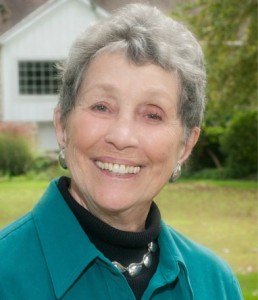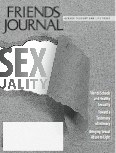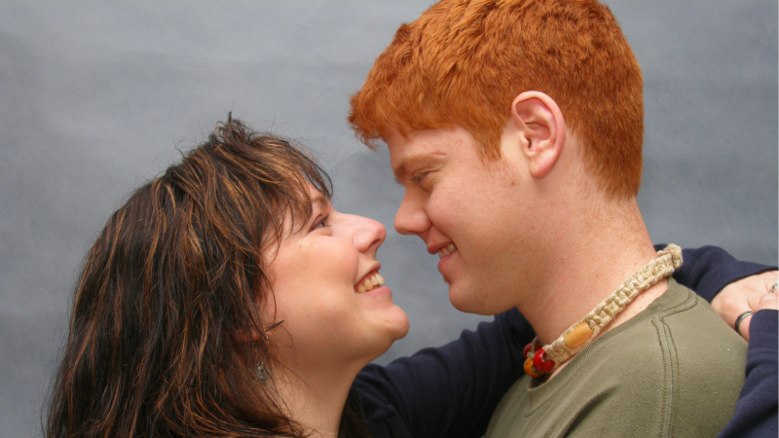
In the 1970s, the sexual revolution was challenging traditional sexual values and I was invited to develop full-year psychology and sociology courses at Dwight Morrow High School in Englewood, New Jersey. The first year I was inspired by my co-teacher, Sol Gordon, a psychologist and popular lecturer who promoted sexuality education nationwide. So my courses included a ten-week unit titled “Human Sexual Behavior” that was multi-disciplinary, examining sexuality from anthropological, historical, psychological, sociological, ethical and health perspectives. The philosophy of sexuality education I developed then has been my pedagogy for the following 37 years. When I retired from teaching and became director of education at a Planned Parenthood, I developed teaching manuals, gave graduate courses in family life education and provided professional development for teachers and health care providers nationwide. My background in group process, Quaker values, and my commitment to Paulo Freire’s concept of “critical consciousness” really enriched my work.
From your experience, what issues around sexuality seem most relevant to Friends? How do Friends struggle with this topic?
Generally, I don’t make broad statements about Friends or assume their issues are different from others’. But I agree with revered Friend Elizabeth Watson, who, back in
1982, contended, “Sexuality is a part of wholeness and we need to imagine how life would be if we experienced sexuality as part of wholeness.” I don’t think most Friends have taken up her challenge. That would require on-going open and honest communication about the failure of traditional values to meet our complex and changing lives. I don’t think that’s happening. A survey of our publications, bookstores and workshops currently offered at Quaker centers and conferences reveals that sexuality issues are not a Quaker concern today. They need to be.
Lesbian/Gay/Bisexual/Transgender/Queer (LGBTQ) Friends and their supporters are a wonderful exception to the lack of dialogue about the many sexuality issues that Friends face today. From the ground-breaking Towards a Quaker View of Sex documenting British Friends’ struggle to examine all their old assumptions about sexuality, to George Lakey’s courageous Friends General Conference (FGC) plenary explaining his homosexuality, to the remarkable Quaker LGBTQ community that provides vibrant meetings for worship, we see that some Friends have risen to the challenge. They have dared to explore new visions of sexuality.
People perceive Christians as very uptight about sex and sexuality. Have you found this to be true?
I don’t like generalizations about “people” or “Christians.” I can tell you that in the
workshops and classes I’ve facilitated over many years, one of the most consistent
questions is, “How can I overcome my early religious teachings?” In fact, each of us needs to examine all our sexual scripts, everything we’ve learned about sexual morality. Yes, Christian teachings over the centuries are profoundly anti-sex and admonitions are deep within many of us. In contrast, we receive frantically mixed messages in this highly sexualized and exploitative society. Quaker values require we be open to our experiences and tender toward each other, so people need to consider what that means when it comes to sexuality, and think about where we can find help discerning answers.
What was your experience like working for Planned Parenthood, and how do you respond to some of the negative perceptions about that organization?
Thirteen years as director of education at a Planned Parenthood enabled me to
do work congruent with my Quaker values. Every one of the teaching manuals I developed, used by most Planned Parenthood educators nationwide, include three domains. Cognitive: understanding the facts; Affective: understanding your feelings, attitudes, values and beliefs; Skills: being able to put your beliefs into action. Planned Parenthood educators are some of the best sexuality educators in the nation, helping young people think about and understand the sexual decisions they must make in a sexually confusing society.
I developed a sticker: “Prevent Abortion: Support Planned Parenthood.” Planned Parenthood prevents more abortions than the entire Right to Life movement, and attacks on it are absurd, for they would deny women the education, health care, and contraception which is, in fact, the major way to prevent abortion. Planned Parenthood provides millions of people, men as well as women, the chance to take control of their sexual lives. If you ask me about immoral behavior, I’d respond that it’s attempts to destroy these services.
As a teacher myself, I noticed that so many of my students’ perceptions of sexuality came from the media. What would you say television, movies, magazines, and even commercials tend to teach us about human sexuality? Have you been able to find what you consider positive portrayals of sexuality in mainstream media?
We live in a sexualized society. The commercialization of sex has become a major social force during the past 50 years. Not only does sex sell everything, not only do sexual images dominate the media, but pharmaceutical companies promote sexual problems they can solve with their pills and patches, while surgeons market their ability to improve breasts and vaginas. Pornography is a billion dollar industry. Sexual values are defined by the media and largely depend on what is profitable.
Naively, most people deny that they are influenced by this constant barrage of media messages. Thus, research into the media is a critical part of all the sex education I do. Some films do a good job exposing advertising’s abuse of women, including the classic, Killing Us Softly, now in its fourth edition. Another film guaranteed to infuriate you—or make you weep—is the new Sext Up Kids: How Children Become Sexualized.
You work with middle aged and older adults about adopting healthy attitudes toward sexuality. What are some of the stigmas that exist in our society when it comes to older adults and sex? What are you hoping to achieve with this work?
“The Sexual Revolution’s Last Frontier: How Silence About Sex Undermines the Health, Well-Being, and Safety in Old Age,” a recent article in the American Society on Aging journal, Generations, tells why I have devoted the past 14 years to promoting sexuality education for older adults and the professionals who work with them. Ageist attitudes toward sex affect the way professionals treat older adults and often becomes internalized by older people themselves. My experience teaching thousands led me to found the Sexuality and Aging Consortium which seeks to 1) provide sexuality education for people in mid and later life and 2) provide professional development opportunities and resources.
What are some things that have surprised you in being a sex educator? Have you had to deal with overcoming negative or unhealthy perceptions yourself?
Anonymous questions are the heart and soul of every course I teach, and I am continually re-surprised by the poignant struggles people of all ages have about sexuality: “How can I say ‘no’ without losing my boyfriend?” “How do you handle sex and disabilities?” “How to approach a sexual discussion with a spouse after a long period of silence?” “What about monogamy? Is it necessary?” I receive hundreds of questions, all of which reaffirm my commitment to creating a place where people can begin to address their concerns. Myself? At 84, still learning, teaching, and writing about sexuality—what a blessed life!
What do you think is the most important message people can come away with from the lessons you’ve learned in educating about sexuality?
We all need to recognize that we live in a sexually dysfunctional and
exploitative society. It is vital for us to explore together the meaning of sexuality, to clarify our own values and beliefs, to educate our children and actively challenge the status quo. I celebrate this issue of Friends Journal. It’s time for Quakers to speak up.




Comments on Friendsjournal.org may be used in the Forum of the print magazine and may be edited for length and clarity.